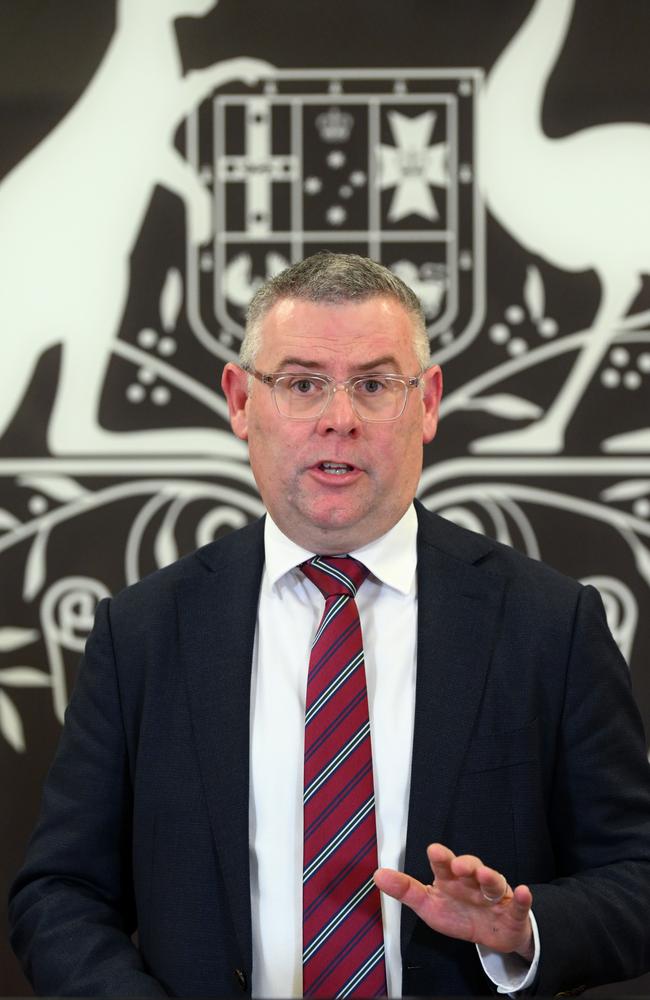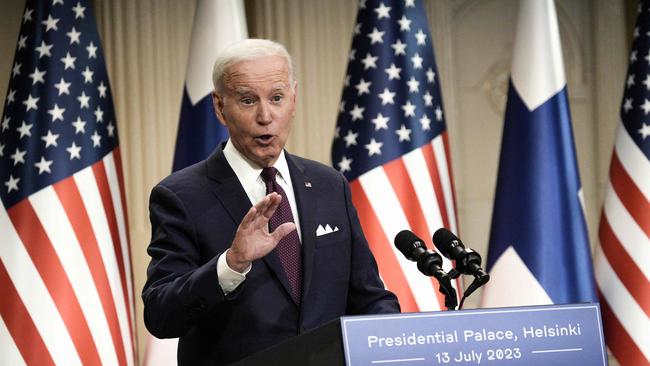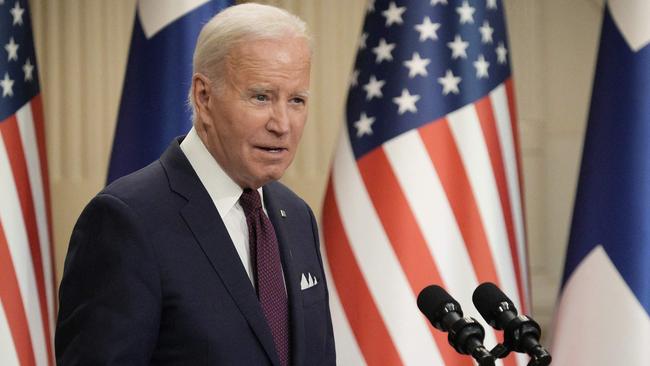Mike O’Connor: Don’t trust governments to tell you who to believe
An attempted attack on free speech in the US could be imported Down Under, giving the Albanese government unprecedented power to control what you see and hear on social media, writes Mike O’Connor.
Mike O'Connor
Don't miss out on the headlines from Mike O'Connor. Followed categories will be added to My News.
The Commonwealth of Australia and the United States of America are by any measure shining examples of democratically governed societies in which a citizen’s right to freedom of speech and expression is enshrined – or are they?
This month, US District Judge Terry Doughty of Louisiana found that various federal departments, including the White House and the FBI, had coerced social media platforms into removing posts that were critical of the government.
The judge described the moves as “arguably the most massive attack against free speech in United States history”.
“The right to free speech is not a member of any political party and does not hold any political ideology,” the judge wrote, citing substantial evidence of a far-reaching and widespread censorship campaign.

“It is the purpose of the Free Speech Clause of the First Amendment to preserve an uninhibited marketplace of ideas in which truth will ultimately prevail, rather than to countenance monopolisation of the market, whether it be by government or private licensee.”
Among the posts that were taken down under pressure from the government were claims that mask-wearing was ineffective, that Covid-19 came from a laboratory in China, that lockdowns and vaccine mandates were wrong, that vaccines were ineffective in presenting Covid transmission, and jokes ridiculing President Joe Biden.
Louisiana Attorney-General Jeff Landry said that the evidence was “shocking and offensive with senior federal officials deciding that they could dictate what Americans can and cannot say on Facebook, Twitter, YouTube, and other platforms about Covid-19, elections, criticism of the government, and more”.
This, of course, could never happen in our Down Under version of the home of the brave and land of the free.

Really? It was recently revealed that as of December last year, the federal government by way of the Department of Home Affairs had contacted social media platforms 4213 times asking to have posts related to the pandemic and its handling of it removed.
Was this about keeping Australians “safe” or shutting down criticism of the government?
It was further revealed that one post deleted showed Victorian Premier Dan Andrews wearing a mask along with a caption saying the mask was as useless as he was.
Keeping Victorians safe, or blatant political censorship aimed at protecting the Premier from criticism? You be the judge.
The Albanese government’s Emergency Management Minister Murray Watt doesn’t see a problem with any of this, saying that he is “comfortable” with this digital censorship, which he described a “really good thing”.
It was, the minister said, about “governments providing and ensuring the Australian public receives information based on science rather than... on the fringes of the Twittersphere”.
Put another way, it’s about ensuring the Australian public receives the information that the government sees fit for it to see, rather than being allowed to make up its own mind – censorship by another name and that is a really bad thing.

Against this backdrop, we have the government’s proposed Combating Misinformation and Disinformation Bill, which if passed, will give the Australian Communications and Media Authority the power to impose millions of dollars in fines on social media companies for publishing posts which the government, via ACMA, finds “harmful”.
The Australian Human Rights Commission can sometimes be seen to operate in a parallel universe, but it is right to warn Australians that “there is a real risk that efforts to combat online misinformation and disinformation by foreign actors could be used to legitimise attempts to restrict public debate, censor unpopular opinions and enforce ideological conformity in Australia.”
This is serious stuff.
Whenever a government says it is acting to keep its citizens safe, the alarm bells should start ringing.
Under the government’s intended legislation, it would have the power to force social media platforms to remove anything that “harms the integrity of government institutions” – anything, in other words, that is critical of the government, its ministers and its departments.

“Crisis” has become the most overused and misused noun in the popular vernacular.
Any problem is now dubbed a “crisis” in the hope that this will disguise the fact that it is a product of government ineptitude.
The Combating Misinformation and Disinformation Bill, however, presents as a genuine crisis for the nation and for anyone who values their freedom of speech and expression.
It will give the government unprecedented power to control what you see and hear on social media under the guise of protecting us from misinformation.
It should be opposed at all costs.



